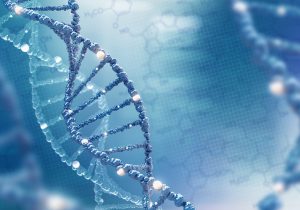
Insights into the structure of the human genome have taught us much about the genetic basis of disease. But what about the genetic nature of health and more specifically, how we as individuals deal with medication? We are, as a species, 99.5% genetically the same. But that last 0.5% difference serves to explain the wide diversity we experience as people in general, including why some respond to medications, and others not as well, or not at all.
Here is an example. People who suffer from a heart attack might be treated with a stent to open up the artery that became occluded with atherosclerosis as well as a blood clot. To avoid another heart attack, patients are often treated with the life-saving drug called Plavix, or the generic form called clopidogrel. These medications act on the blood component called platelets and keep platelets from forming another clot. But for some individuals, clopidogrel does not work. The problem is who are those people? The reason that medicine does not work is that some people are genetically wired to not metabolize clopidogrel from the inactive chemical form, to the active form that works on platelets. This failure of a treatment is not a failure of the drug, but rather in the genetic wiring of the patient. Performing a pharmacogenetic test or more specifically a DNA DrugMap™ Profile by OralDNA® Labs will tell you and your health care provider which medications, out of a large number of critical drugs, will work for you.
Pharmacogenetics is the area of genetics that seeks to explain who and how we metabolize medicines. By using DNA sequencing and focusing predominantly on the “cytochrome p450 markers” we can accurately predict how a person’s proteins, that do the work of medication metabolism, ultimately function. Most of these proteins are enzymes; which mean they work on selected and specific chemicals typically in ways that activate or inactivate the wide variety of common medications. Differences in the protein function determine whether the proteins work “fast”, “slow” or in between, namely “normal”. As a consequence, 15-40% of people, when using a medicine as prescribed might not get any of the benefit of that drug. Conversely, different people, taking the same medication might get too great of a response and may be at risk of serious side effects.
How can you come to know which medicines are working for you? Perform a DNA DrugMap™ Profile test today . It’s a once in a lifetime test, offered by your health care provider that can serve as a guide for the medicines you take today and for any potential medicines you may need in the future to help keep you feeling well.
For more information on how to become an OralDNA Provider – scan HERE: 
- Article Overview with OralDNA - December 17, 2021
- immun19™: OralDNA® Lab’s NEW COVID-19 Neutralizing Antibody Test - August 27, 2021
- Periodontal Inflammation Primes the Systemic Innate Immune Response - November 20, 2020
